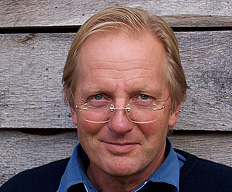
Ten minutes ago it was May
As winter takes hold Sam Llewellyn recalls the joys of a spring sortie.
The boat is having a slow winter refit. She is shored up in a cold shed where dust hangs flashing in cold beams of sun that creep through gaps in the weatherboarding. We spend a lot of time in there, the mind drifting.
It seems about ten minutes ago that it was May, and we were sliding down Milford Haven past huge tankers squirting gas and crude oil into the refineries lying behind their vast concrete jetties.
In the race off St Anne’s Head the bow scooped up lumps of water and sluiced them down the deck. We pulled in some mainsheet and fought our way through the sinister boils of the back eddy, the lighthouse reeling white against the sky, the islands of Skokholm and Skomer low across the horizon to the west and northwest.
As we left the lee of the cliffs the breeze clumped into the sails. We heeled delicately to port, settled the nose on the distant line of Skomer, and reclined in the cockpit, boots up on the opposite thwart as we slanted out from the land.
Running tides and races
Tide is an important factor everywhere round the islands of Britain, but hereabouts the north going flood runs like a salmon river, accelerated by the funnels created by the southern entrance to the Irish Sea and a splatter of rocks and islands. It was pushing us northwards at a satisfactory couple of knots.
Less satisfactory are the races it creates. To the west, the overfalls of the Wild Geese and its furious companions hump their backs and honk and flap and make life a misery for one and all. In Ramsey Sound, north of Skomer, the Bitches produce a standing wave much patronised by surfers and kayak enthusiasts of a suicidal disposition. And worst of all, in the opinion of some connoisseurs, is Jack Sound, between Skomer and the mainland, through which the tide runs at some nine knots, setting on to some unpleasant rocks – navigable with care in light airs, impassable in fresh breezes, and making, in a gale over the tide, the roar of an erupting volcano.
Today’s trip is a picnic, not an arrival from America, and there is no need to get mixed up in all that ferocity. There are overfalls to starboard and overfalls to port, but the boat’s bow is peeling a neat curl of water from a smooth lane between the rough stuff, and at the end of the lane, Skomer is rising from the sea.
There are two harbours on the island – North Haven, sheltered from southerlies, and South Haven, sheltered from northerlies. Into South Haven we glide. The bay is deep, clear as black glass. Jagged ramparts of rock tower around us, and around them swarm hundreds and thousands of birds.
Clown-beaked puffins
The breeze is muffled by the land, but there is no temptation to start the engine. A kittiwake housing estate towers to port, its snow-white inhabitants shouting their names from the ledges outside their flats. Guillemots and razorbills hurtle across the sea like bricks with wings, black-backed gulls patrol the cliffs, and Manx shearwaters infest the rabbit holes of the summits. But nobody is paying much attention to them, because we are fixated by the thousands of clown-beaked puffins shooting across the water in busy groups.
Under the shore the wind vanishes. Down go the anchor and the sails and out comes supper. The sun sinks. Even after it has gone, the wheeling crowds of birds are lit above the night-dark land. Like, come to think of it, dust-motes in the winter boat-shed.
We will crack on with the winter refit. And next May, when the puffins are doing their stuff, we will go and spend a night in the South Haven again.
Contact UsArticle Published: December 19, 2013 11:13